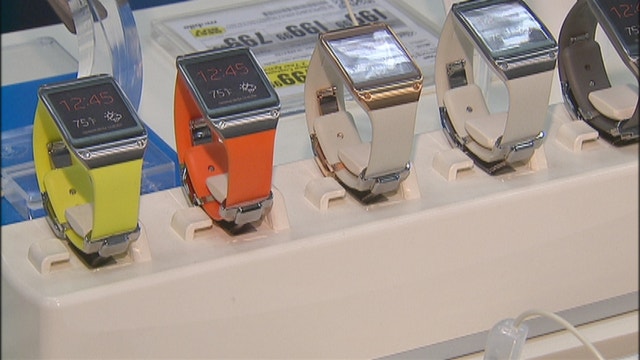The Year in Technology: Innovation Reigns Supreme
As the year kicked off, touch-screen tablets and computing devices were everywhere after Microsoft (NASDAQ:MSFT) overhauled its trademark Windows operating system and launched a new finger-friendly version in the fall of 2012.
Touch-screen devices were a major trend at the annual Consumer Electronics Show in Las Vegas and tablets were by far the biggest winners this year. Market research firm IDC predicts that PC sales will fall roughly 10% this year as consumers reach out and touch their tablets instead; IDC expects tablet sales to soar 54%.
The surge in portable computing was a boon to companies that excelled in the mobile space like Apple (NASDAQ:AAPL), Google (NASDAQ:GOOG) and Samsung, but it was a slap to the companies that made their fortunes on personal computers. Companies like Hewlett-Packard (NYSE:HPQ)and Dell (NASDAQ:DELL) struggled to adapt to rapidly shifting consumer preferences. H-P launched a turnaround plan that involves laying off 34,000 of its employees. Dell saw profits plunge and was engaged in a takeover battle between its founder Michael Dell and activist investor Carl Icahn. Dell finally prevailed and the company was taken private in late October of this year.
As the mobile sector continued its meteoric expansion, Canadian smart-phone maker BlackBerry (NASDAQ:BBRY) struggled to keep pace. BlackBerry’s founders contemplated taking the company private and even flirted with the idea of a buyout from some other prominent tech firms, but in the end the company remained private. BlackBerry is on life-support after getting a $1 billion shot in the arm from its biggest shareholder, Fairfax Financial.
It was a different story for social media. Facebook (NASDAQ:FB) finally managed to top its IPO price this summer and the stock has charged ahead ever since as Facebook shares more than doubled. Facebook rival Twitter (NYSE:TWTR) had a successful public debut in November, logging a healthy 73% first day pop from its $26 IPO price. Twitter’s stock was listed on the New York Stock Exchange, which surprised many and was interpreted as a snub to the tech-heavy Nasdaq exchange related to Facebook’s botched IPO in 2012.
The social media love extended to Snapchat, the Los Angeles-based mobile messaging app that lets users send photos and text that disappear after 10 seconds. The company sparked Facebook’s interest to the tune of a $3 billion buyout offer. Snapchat’s 23-year-old founder Evan Spiegel turned the offer down and secured another $50 million in a “Series C” funding round, bringing its total VC load to $120 million.
After years of false starts, electric cars finally began to take off in 2013. Elon Musk’s all-electric Tesla (NASDAQ:TSLA) found favor with investors and consumers as sales of its Model S vehicle charged ahead. Even after the Silicon Valley electric auto maker’s stock sank in the wake of reported crash-related fires, the stock was still up more than 300% on the year.
Other luxury automakers opted to ride the electric wave; BMW announced its all-electric i3 and Mercedes Benz announced it will retail its B Class Electric Drive Car in the summer of 2014.
Any roundup of top tech-trends emerging in 2013 would be incomplete without “wearables,” or devices like watches and glasses that can be worn. From Fit-Bit to Nike’s (NYSE:NKE) Fuelband, Google Glass to Samsung’s Galaxy Gear and Qualcomm’s (NASDAQ:QCOM) Toq, wearable technology that lets you record your steps, sleep patterns, and every move you make is an emerging device category that is here to stay.




















